
Eat for glowing skin
You probably think about how nutrition affects your internal health and your weight, but eating the right foods can also improve the quality of your skin. “You can look at food as the raw materials for a factory,” says Ian Koo, a naturopathic doctor based in Mississauga, Ont. “The better the quality of the raw materials we have to start with, the greater the chance that we’ll end up with a good durable product.” Here’s what to add to your diet to improve the health of your skin.
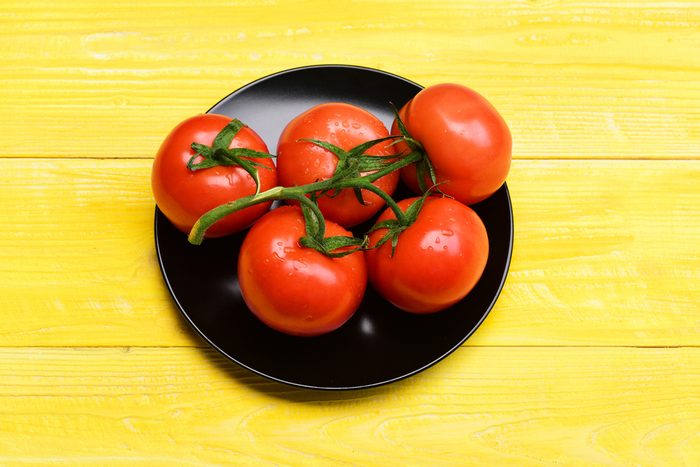
1. Tomatoes
Eating any tomato-based foods such as sauce and tomato juice may help clear up acne. “Lycopene [the phytochemical that makes tomatoes red] may lower an acne-promoting hormone,” says Alan Logan, a naturopathic doctor and author of The Clear Skin Diet (Cumberland House). Though there’s no set recommendation for how much lycopene you should eat to combat stubborn spots, Logan suggests including tomato-based foods in your diet between three and five times a week.
Lycopene may also help defend your skin from UV rays, says Koo. “Lycopene and other carotenoids found in orange to reddish-coloured fruits and vegetables can help improve the skin’s antioxidant status. Antioxidants combat free radicals produced from excessive sun exposure,” he describes.
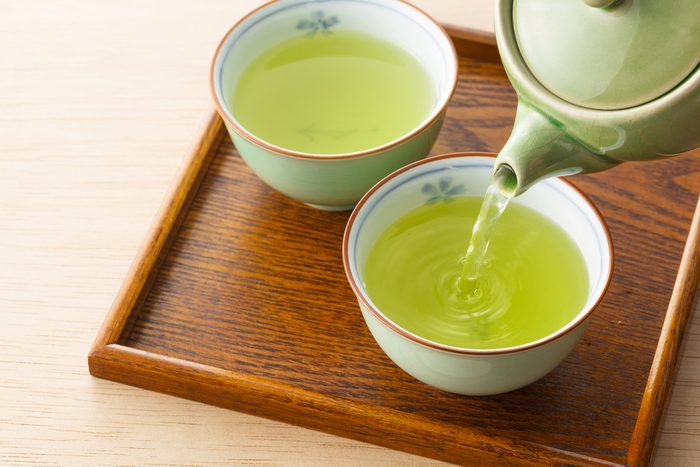
2. Green tea
Green tea fights acne based on its ability to lower levels of an acne-producing hormone called dihydrotestosterone (DHT), says Logan. He recommends brewing up three to five cups of green tea every day in order to reap the full benefits for your skin.
This power drink is also packed with antioxidants, which will help your skin look younger and healthier overall, says Koo.
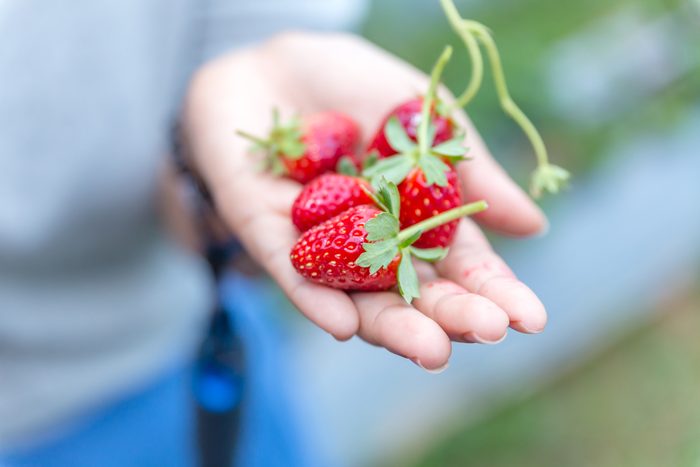
3. Berries
Deeply coloured berries such as blueberries and cherries are loaded with antioxidants, which help your body fight off blemishes. “One thing we found out very recently about acne is that there’s a great local oxidative stress going on, so much so that it actually depletes the antioxidants in people with acne. So the more severe your acne, the lower your levels of blood antioxidants,” says Logan.
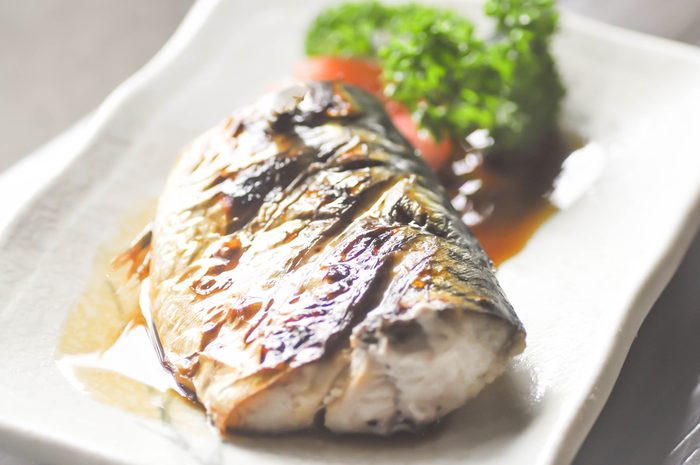
4. Fish and seafood
An international study published in the Journal of the American College of Nutrition found that people who ate diets high in fish and seafood had less skin wrinkling. That might be because the omega-3 fatty acids found in fish and seafood slow down the wrinkling process. Wrinkle development is rooted in inflammation, says Logan. “Inflammatory chemicals are essentially like acid rain on the collagen of your skin. Omega-3s turn down the dial on the production of these chemicals,” he explains.
Omega-3s can also help combat acne in a similar way. “Acne spots can look red and are often warmer to the touch, a clear sign of inflammation,” says Koo. “Furthermore, omega-3 fatty acids have mood-regulating benefits, which can help with the stress component of having acne.” He recommends that acne sufferers consume four to five servings of oily fish per week in order to treat the condition. If you can’t imagine eating that much fish every week, Koo suggests taking fish oil supplements instead.
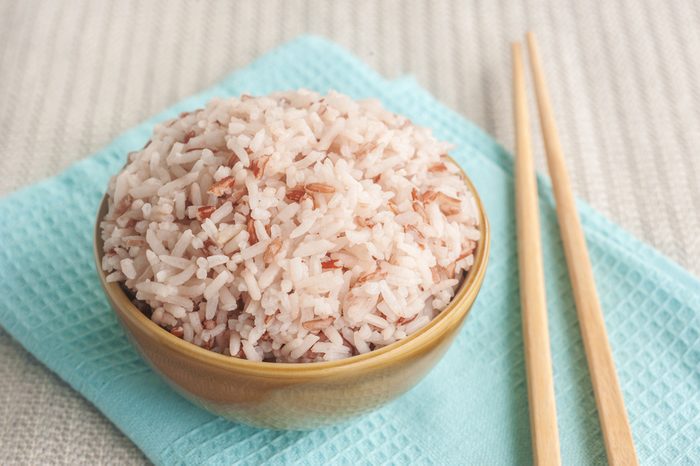
5. Brown rice
Check the packaging of your skin products and you’re likely to see ceramides in the list of ingredients. These lipid molecules, which help your skin maintain its moisture, can also be found in foods such as brown rice. When you eat naturally occurring ceramides, they get incorporated into the outer layer of your skin and help it maintain its hydration, says Logan. “There are clinical studies that showing that ceramides [you eat] significantly improve hydration.
